D 2021
23 min
short fiction
📺 stream on Sooner or Amazon Prime
🌹 55. Hof Int. Film Festival
🌹 44. Clermont-Ferrand ISFF
🌹 34. Filmfest Dresden
🌹 36. Leeds Int. Film Festival
🌹 44. Poitiers Film Festival
🌹 16. Xposed Queer Film Festival Berlin
🌹 24. Tel Aviv ISFF (Jury Special Mention)
🌹 17. UNDER|DOX München
🌹 33. Hamburg Int. Queer Film Festival
🌹 15. filmzeit kaufbeuren
23 min
short fiction
📺 stream on Sooner or Amazon Prime
🌹 55. Hof Int. Film Festival
🌹 44. Clermont-Ferrand ISFF
🌹 34. Filmfest Dresden
🌹 36. Leeds Int. Film Festival
🌹 44. Poitiers Film Festival
🌹 16. Xposed Queer Film Festival Berlin
🌹 24. Tel Aviv ISFF (Jury Special Mention)
🌹 17. UNDER|DOX München
🌹 33. Hamburg Int. Queer Film Festival
🌹 15. filmzeit kaufbeuren
a soft-apocalyptic romcom by Marian Freistühler
with
Marian Freistühler
Pavlo Dalakishvili
Nils Timm
DOP: Julian Gillmann
Sound: Erik Kierzek, Ruben Christiansen
Sound Design: Cornelius Wilkening
with
Marian Freistühler
Pavlo Dalakishvili
Nils Timm
DOP: Julian Gillmann
Sound: Erik Kierzek, Ruben Christiansen
Sound Design: Cornelius Wilkening
Die geheimnisvollen Inseln
Islands in the City
Gespenstisch liegen die vorübergehend stillgelegten Kreuzfahrtschiffe im Hamburger Hafen vor Anker. Ein junger Mann kommt in die Stadt, wartet auf eine Nachricht und strandet am Elbufer. Er beobachtet Paare, die im Sonnenuntergang flanieren, kauft sich ein paar Snacks und stellt sich das Leben auf der anderen Seite des Flusses vor.
Like ghosts, the temporarily shut down cruise ships lie in the port of Hamburg. A young man comes into town and is stranded on the riverbank, waiting for a message. He watches couples strolling along in the sunset and gets himself some sweets.
Islands in the City
Gespenstisch liegen die vorübergehend stillgelegten Kreuzfahrtschiffe im Hamburger Hafen vor Anker. Ein junger Mann kommt in die Stadt, wartet auf eine Nachricht und strandet am Elbufer. Er beobachtet Paare, die im Sonnenuntergang flanieren, kauft sich ein paar Snacks und stellt sich das Leben auf der anderen Seite des Flusses vor.
Like ghosts, the temporarily shut down cruise ships lie in the port of Hamburg. A young man comes into town and is stranded on the riverbank, waiting for a message. He watches couples strolling along in the sunset and gets himself some sweets.
also starring
Erik Hamann, Julian Gillmann, Jakob Fließ, Florence Schreiber, Dennis Hörtinger, Simon Langemann, Marlena Arendt, Ruben Christiansen, Ga Young Lee, Andreas Hopfgarten, Alexandra Woermann, Oliver Bassemir, Olga Kondyli-Roussou, Elias Paul Richter
additional camera
Lukas Treudler
color grading
Eric Giese
graphic design
Anna-Lena Cychy
title design
Alexandra Woermann
subtitles
Ricarda Schmiede
merci
Nicolaas Schmidt, Anne Doering, Andreas Hopfgarten, Jessica Hölzl, Patrick Wallochny, Robert Bramkamp, Jeanne Faust, Nele Wohlatz, Angela Schanelec, Bernd Schoch, Michaela Ott, Ute Janssen & David Schulz, Louis Fried & Max Lequex, Marie Sorgenfrei, Sabine Boshamer, Anne Meerpohl
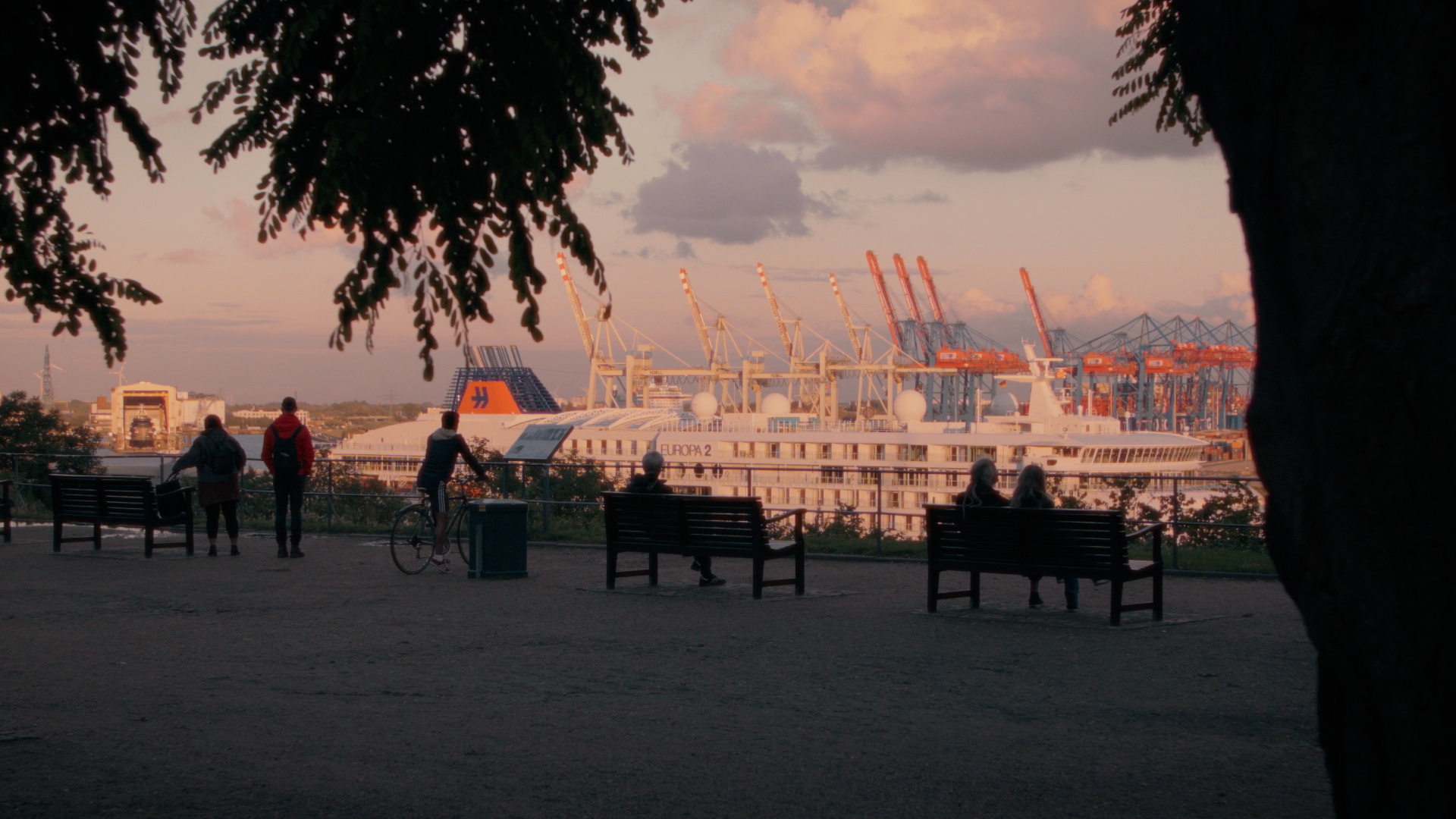
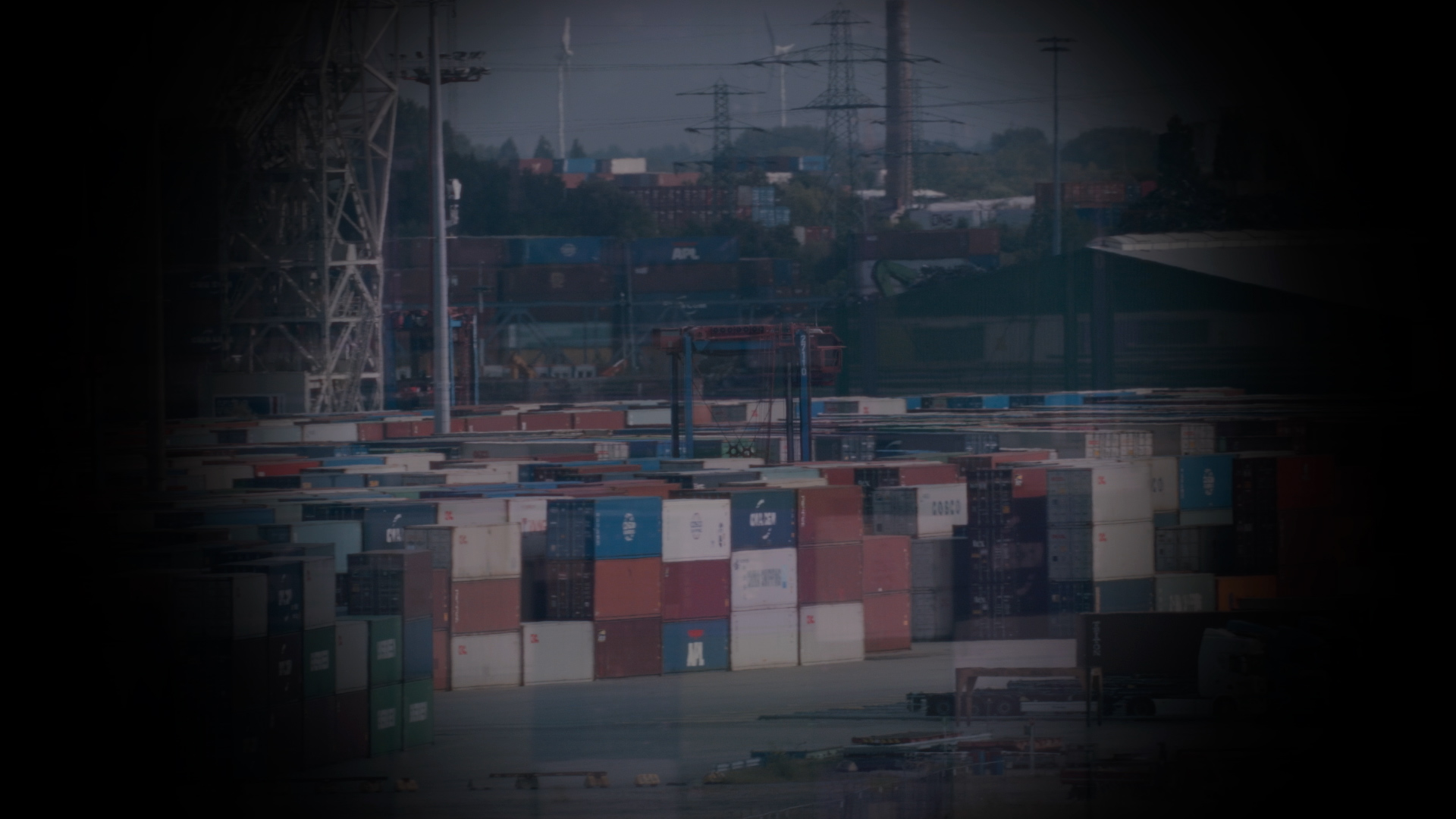
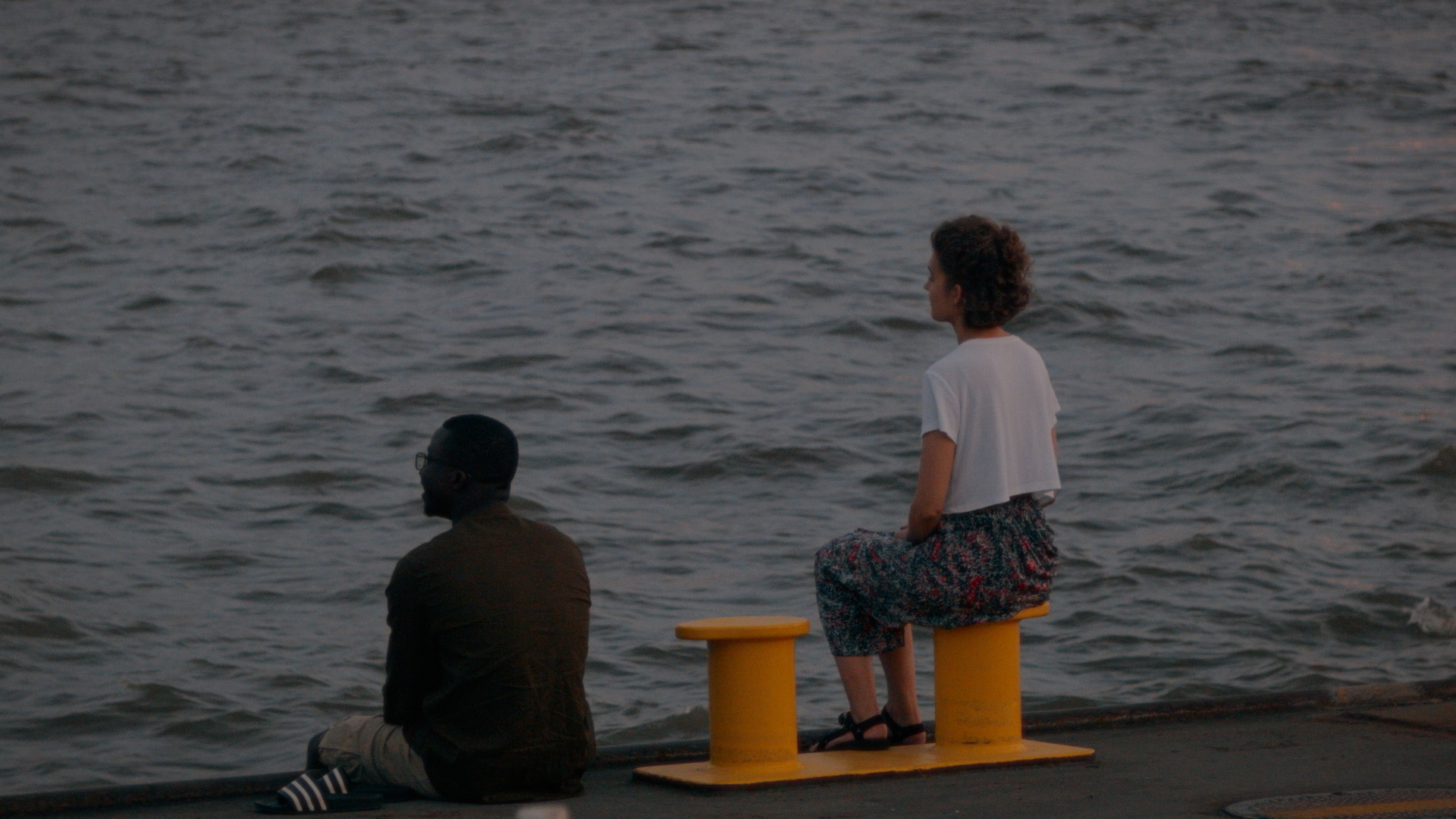
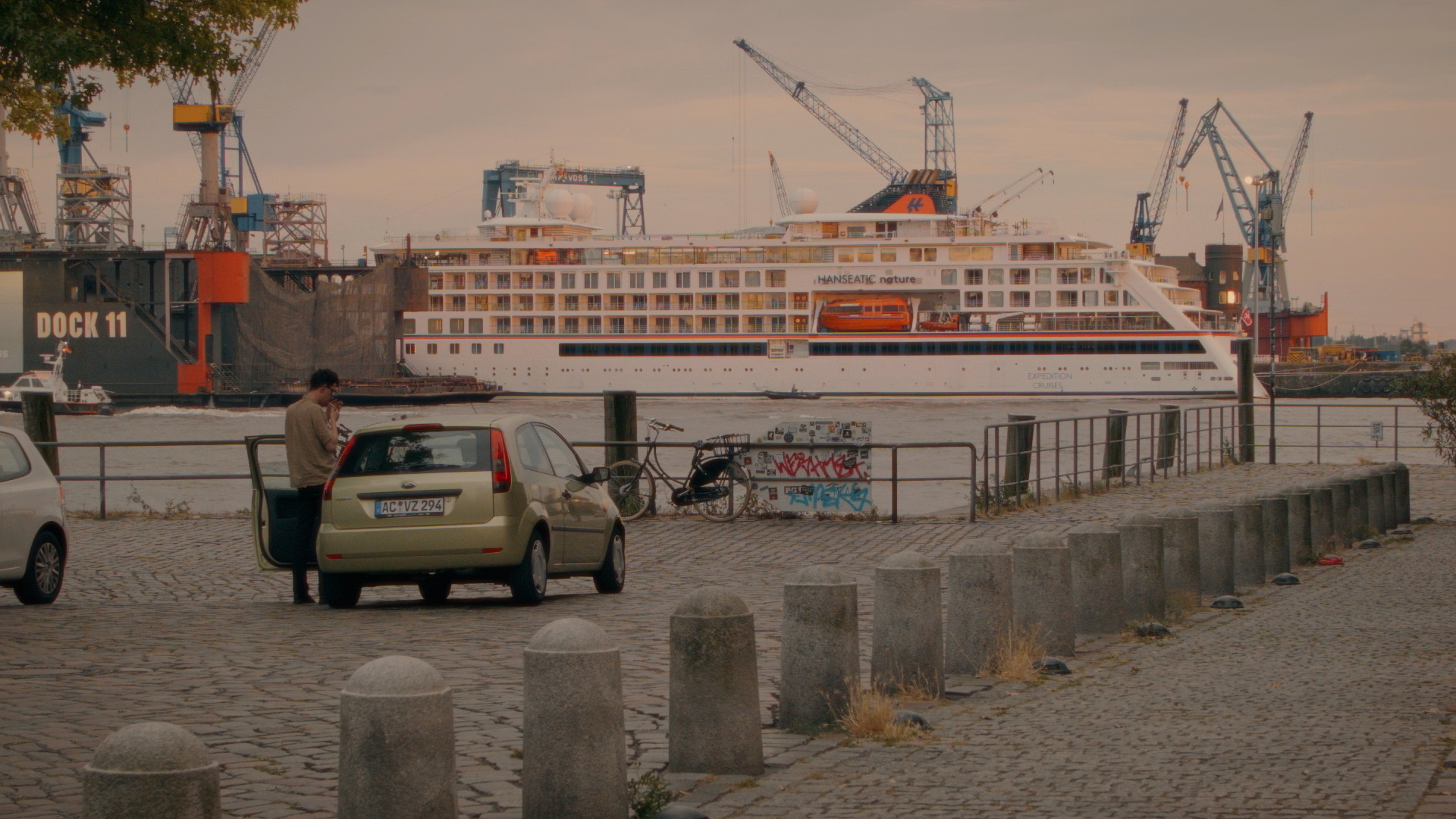
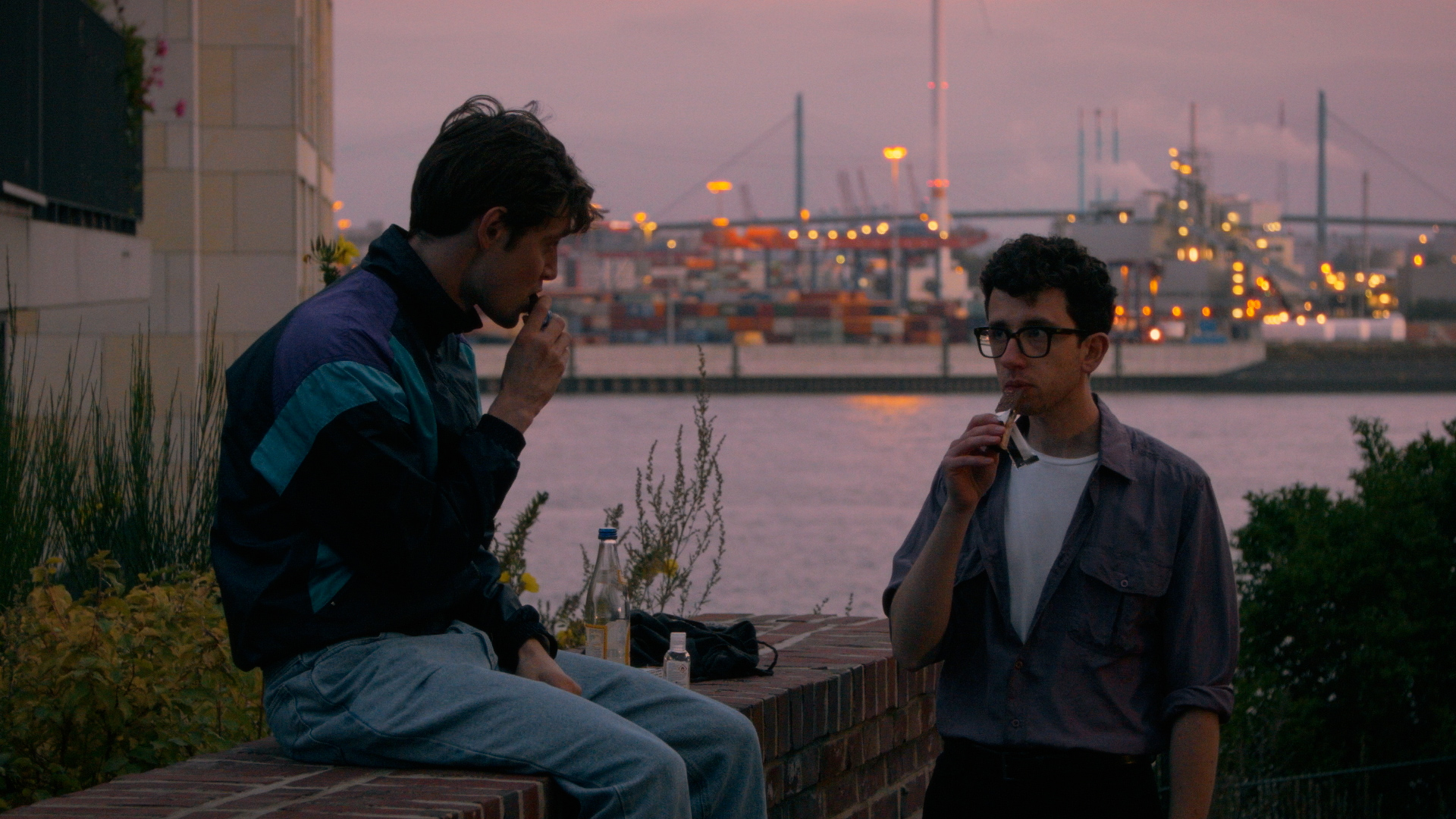
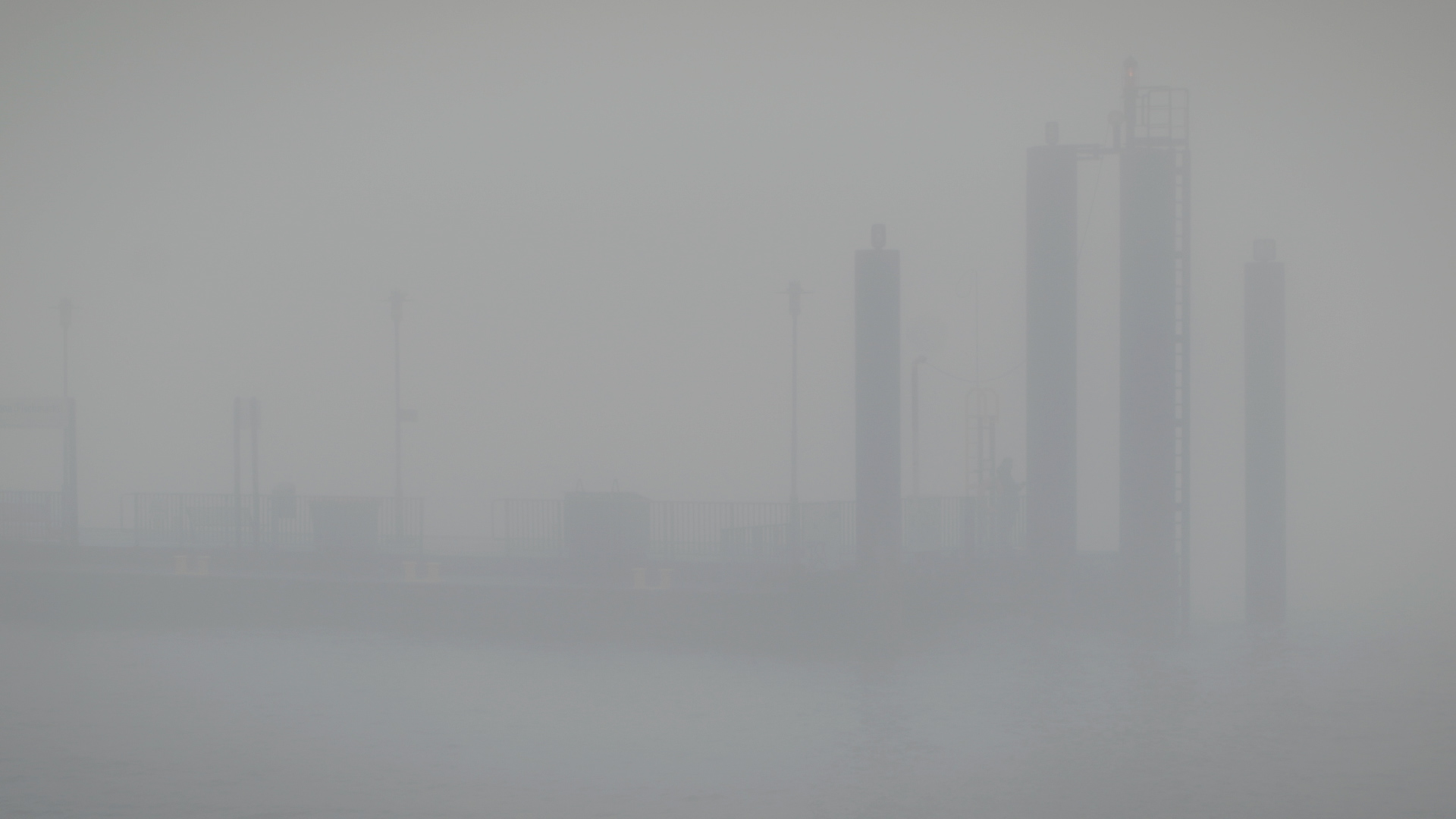
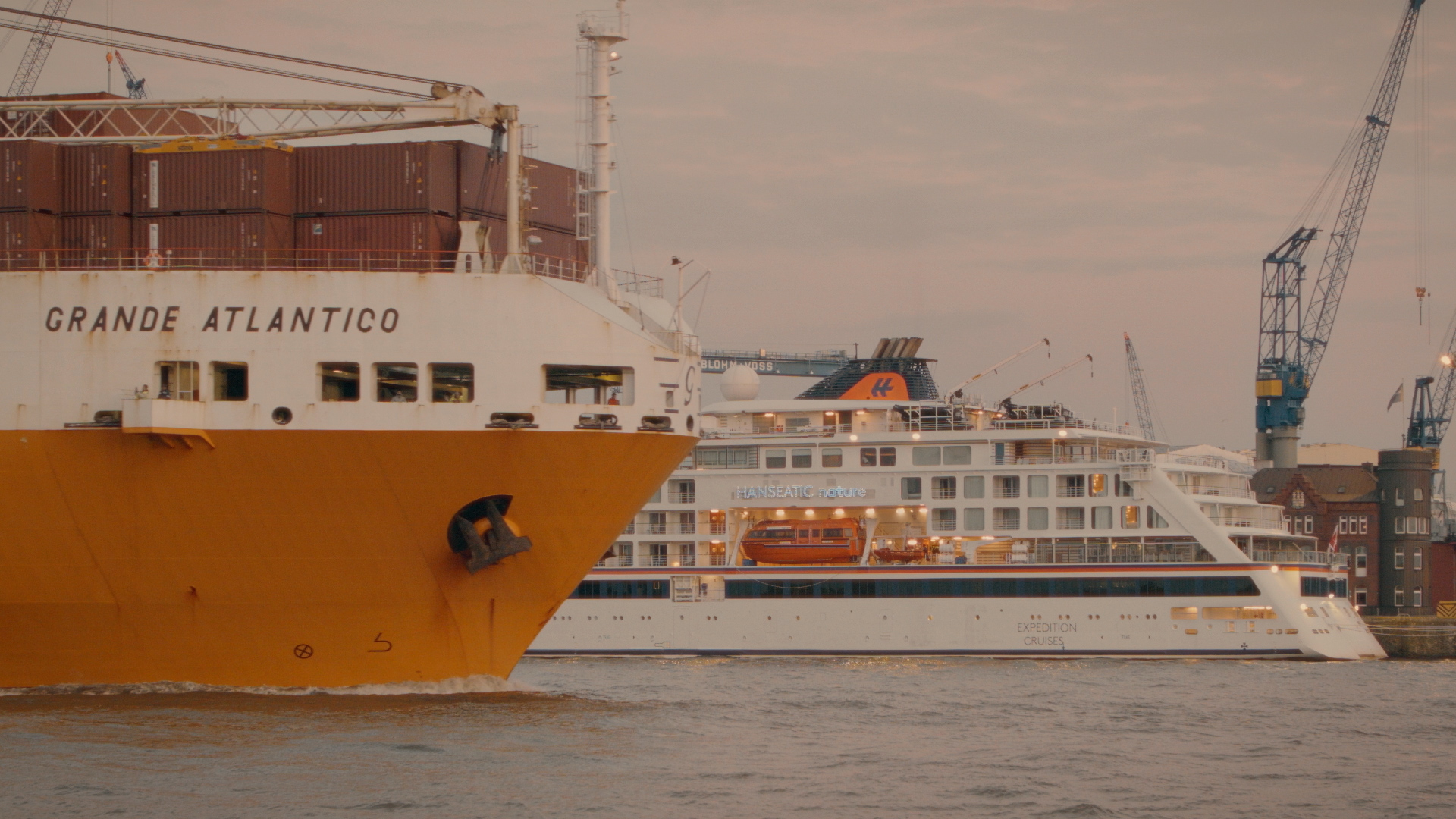
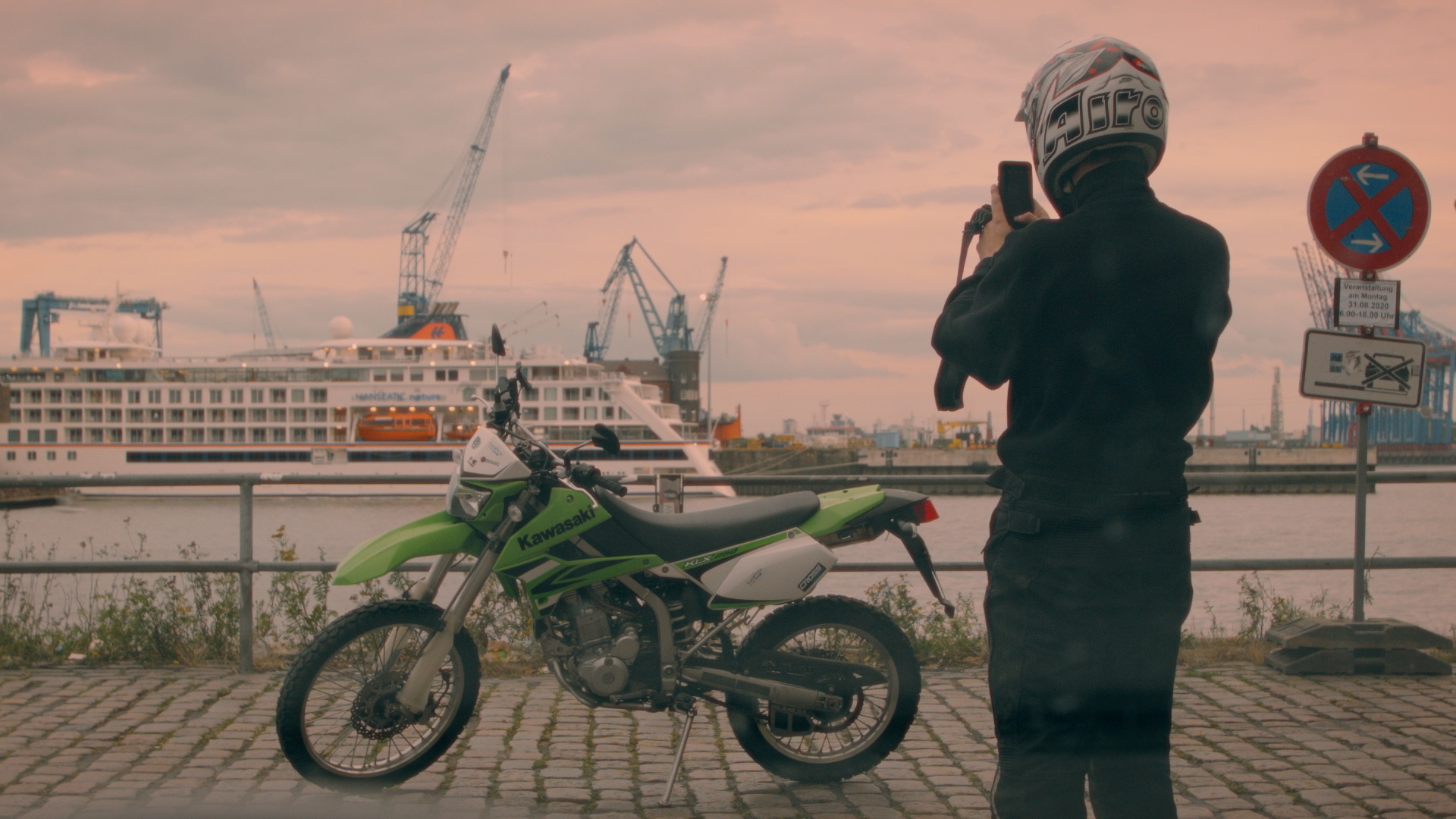
Interview DIE GEHEIMNISVOLLEN INSELN (ISLANDS IN THE CITY)
Questions by Clermont-Ferrand Film Festival
answered by writer and director Marian Freistühler
January 2022
Did the lockdowns and more generally the pandemic have drawn you to make a film that deals with the ideas of longing and loneliness?
It may sound paradoxical, but what I observed during the first contact restrictions was the opposite of loneliness. There were a couple of weeks in Hamburg's spring 2020 when you were only allowed to move through the public space in pairs at most. I sat by the river almost every day, reading a book and all I saw was couples everywhere!
These groups of two, which were similar but isolated from one another, did not appear depressed or nervous. They seemed to enjoy the concentration on each other, the pause from everything else. So the picture that presented itself to me was rather ambivalent: even when the world is going to end, the sunsets are still terribly romantic. The uncertainty about where the journey was going also had a certain appeal, and the pandemic was initially somewhat adventurous. Something that we experienced together for the first time. I wanted to give shape to this ambivalent feeling.
It is important to me that it is not just a sad, dreary film about longing and loneliness. But that the film has a sense of humor, that it is colorful, that it celebrates longing and projection. Almost like a pop song. And I have always loved songs that perform the saddest lyrics in a cheerful, uplifting manner.
In the scene where the main character shares a chocolate bar with a stranger, the two men obviously fail to connect to each other. Could you tell us more about what you wanted this encounter to symbolize?
It's not so much about a symbol. Instead, it's very concrete, very tangible: for the first time in the film, there is a dialogue. Two people stand face to face and talk to each other. At that point in the film you might have already forgotten that something like this is even possible. That's what I mean when I say it's very tangible, present. A small, concrete event.
But of course it is true that the two men talk past each other and that there is a second layer. That the expectations of an encounter are undermined. I love dialogues that are not about what is being said. I wanted to try that. So when the protagonist explains the differences between the chocolate bars, there is of course something else as well, besides the question of which one is crispier and why.
However, I hesitate to say that they don't connect. It's about sharing something. About not being alone for a moment. Even if, in the end, they part without making the next step. Sure it's a bit sad, but hopefully it was also nice and maybe even a little funny. The whole film is about the fact that it might sometimes even be nicer to just imagine things without actually doing them in the end.
What was it like to act and direct at the same time?
The film was made in a very spontaneous, very intimate and process-driven way. At the beginning, I was just outside with the camera a lot, all by myself, observing people and things in a rather documentary fashion. I started editing some scenes and came up with new ones that I would like to see. My desire to have a protagonist to play with, grew stronger. It felt like I needed a clear narrative structure that I could use as a path from which I could deviate at any time, taking a short detour. So I wrote a screenplay but constantly changed it on the go.
So I needed an actor who would always be at my disposal (without getting paid) and, given the entire process, it felt like a very natural next step to do it myself. I am not an actor, but I love to play. It was fun, honestly. But no worries, I am not planning to do it every time now.
What's your definition of a good film?
Films that are not trying to be good films. I like films that are vulnerable, full of doubts and uncertainties. That try to give form to a vague feeling. That are not perfect, not professional. Films that do not take themselves too seriously, but the spectators. That watch and listen closely and give the audience a chance to do so, too. I like surprising films that make strong decisions, films that do not want to be understood. Films that embrace ambiguity, that invite the audience to make an experience and that allow you to drift away. I like films that treat their characters tenderly. Films that have a sense of humor, because humor is the nicest way to show that there are always different perspectives on the same thing. I like films that offer an alternative reality. That are not pretending to re-enact reality but that are not entirely detached from it, either. Truth of illusion, not illusion of truth.
